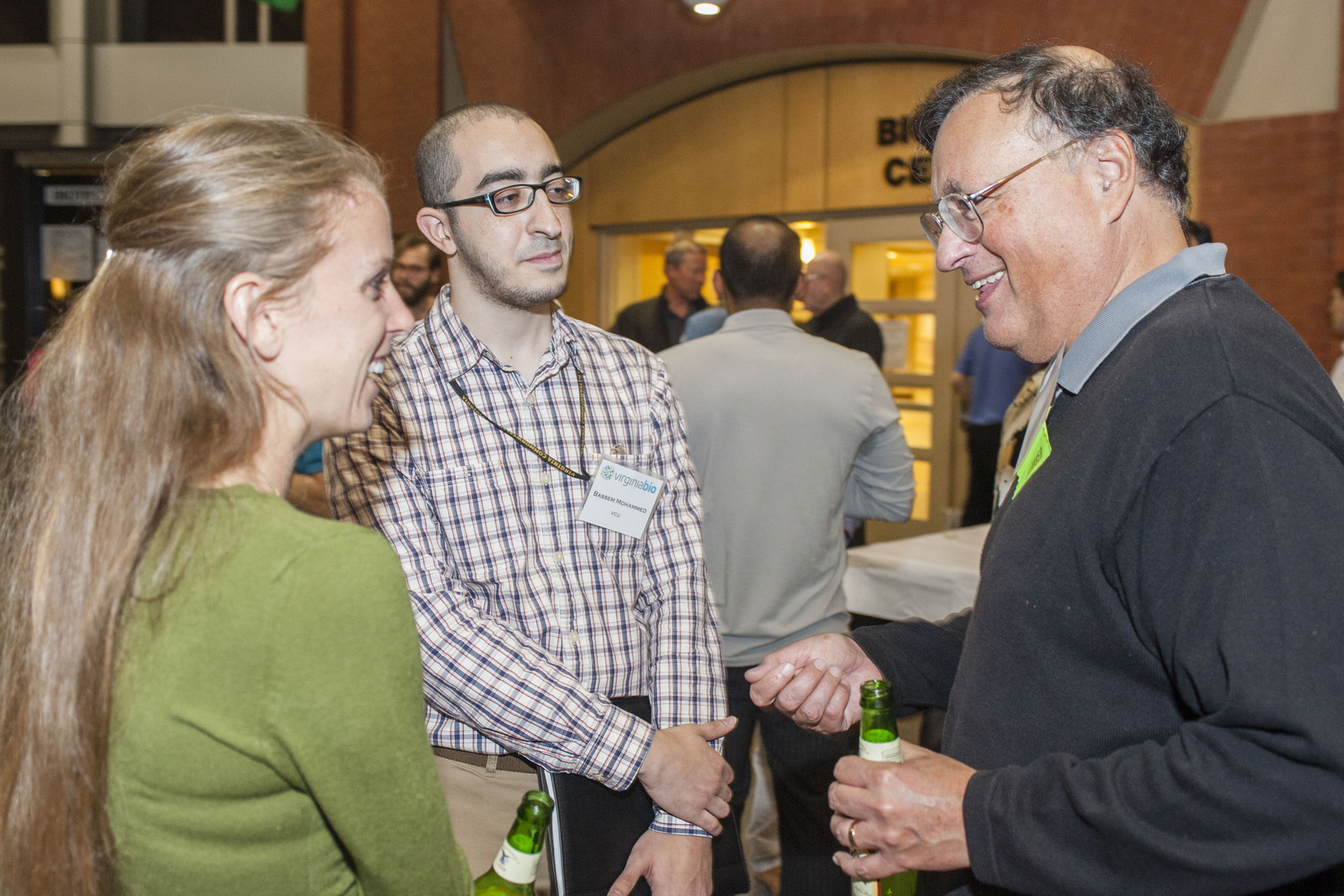Melissa Powell’s last job interview was in 2009 during her undergrad years — for a restaurant gig. But when she graduates next year with a Ph.D. in neuroscience, she feels empowered to land a great job in research or academics, thanks to a thorough education and a chance to hone her networking skills.
Powell and several dozen other graduate students from VCU’s School of Medicine attended Networking 101 last fall. The event offered tips to meet and mingle with potential employers — and then a chance to practice what they’d learned with members of the Virginia Biotechnology Association, a statewide non-profit trade organization representing the life sciences industry.
Katybeth Lee, associate director with Career Services at VCU, coordinated the event with the Graduate Student Programming Board on the MCV Campus.
“Last year, it became clear that students and post-docs are seeking opportunities to connect with professionals working in the bioscience field. Those professionals are looking to connect with the talent we have here at VCU, strengthening the bioscience workforce pipeline in Virginia,” she said. “This event was intended to meet both these objectives, capitalizing on VCU’s strong partnership with VABIO, our state bioscience association conveniently located on the MCV Campus.”
Many graduate students feel better equipped for the lab than getting to know potential employers in social situations. Sri Lakshmi Chalasani, a Ph.D. candidate in pharmacology and toxicology, noted, “We’re spending up to 14 hours a day on our work. Sometimes we don’t know what’s happening outside.”
At the networking session, Lee encouraged attendees to use those skills they’ve developed through years of study and labwork. “You are scientists,” she told the group. “Consider networking as an alternate form of data collection.”

“You are scientists. Consider networking as an alternate form of data collection.”
She encouraged students to be prepared with engaging conversation starters (“What’s the most interesting thing that’s happened today?”), a knowledge of reception etiquette (“If you’re drinking, hold the drink in your left hand so your right hand isn’t cold and clammy when you shake hands”) and a plan to break into conversations with others (“make eye contact with someone already in the group”).
And when it comes to conversation, “The key to networking is finding common ground,” Lee told students.
Pharmacology and toxicology’s Allen Owens, who earned his doctorate this spring, was active in programs for career development. “Being a part of these programs has helped me solidify career goals,” said Owens, who gained experience in an internship at the VCU Innovation Gateway.
Master’s and doctorate level graduates will not all end up in academia.
“It’s simply a matter of numbers,” said Jan Chlebowski, Ph.D., the medical school’s associate dean for graduate education. “However, the skill sets that these people are developing are very marketable in a wide variety of areas. Our students have a thirst for any kind of information about any alternatives that are out there.”
After the 30-minute Networking 101 crash course, students were released into a reception attended by dozens of VABIO industry representatives. They shook hands. They chatted. They collected contact info and made plans to stay in touch. VABIO organizations were pleased, said Chlebowski, and hope to keep communications channels open.
“Tonight is not a one-and-done,” Lee reminded students. “You’re here for the long haul.”
By Lisa Crutchfield
Photography by VCU University Marketing

